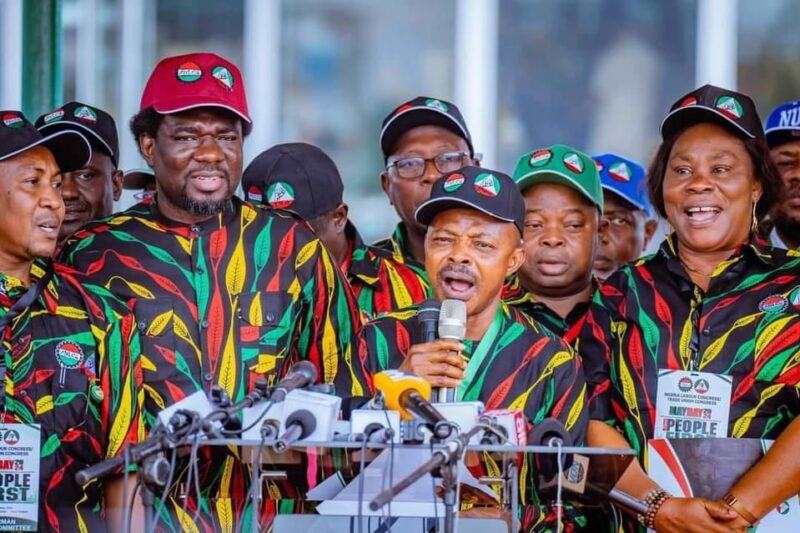Labour unions in Nigeria are gearing up to engage with state governments to ensure the immediate implementation of the recently passed National Minimum Wage Amendment Act. This legislation, approved by the Senate on Tuesday, guarantees a new minimum wage of N70,000 per month for Nigerian workers.
The bill, which President Bola Tinubu sent to both chambers of the National Assembly, was swiftly passed in an unprecedented one-hour session. It sailed through all three readings in both the Senate and the House of Representatives without opposition.
Opeyemi Bamidele, the Senate Majority Leader, emphasized that the new wage was a result of extensive negotiations, stating, “This is part of the Federal Government’s short-term measure to mitigate the situation in the country.” Chief Whip Tahir Monguno added that the frequency of wage reviews has been reduced from five to three years to better align with economic conditions.
The passage of this bill is seen as a major victory for labour unions, who had initially demanded a much higher minimum wage of N494,000, later adjusting their request to N250,000. After rigorous discussions, they accepted the government’s proposal of N70,000.
The Nigeria Labour Congress (NLC) and the Trade Union Congress (TUC) had both threatened nationwide strikes if the government failed to approve a new wage. Following the bill’s passage, TUC National Vice President Tommy Etim expressed satisfaction with the Senate’s prompt action and urged state governments to expedite the implementation process. Etim highlighted the urgent need to address the socioeconomic challenges faced by workers, saying, “Moreover, the states should not delay in the implementation because of the socioeconomic challenges and the need to address hunger in the land.”
Similarly, the NLC’s Head of Public Relations, Benson Upah, called on state governments to follow the federal lead without delay, underscoring the importance of timely compliance due to the expiration of the previous wage law in April 2024.
In response to the new legislation, several state governments have already begun to take action. In Kwara State, Governor AbdulRaman AbdulRazaq submitted a bill to the State House of Assembly seeking approval for a revised budget to accommodate the new wage. Ekiti State Governor, Biodun Oyebanji, assured workers that the state would comply with the new wage law once signed by the President. He expressed his commitment to serving the workers and addressing outstanding pension arrears.
Osun State has also pledged to implement the new wage, with Commissioner for Information and Public Enlightenment, Kolapo Alimi, affirming the state’s dedication to workers’ welfare. Despite acknowledging the financial strain, Alimi emphasized that the new wage is a legal obligation and the state will meet it.









